- Phone: +92 302 6644789
- Email: info@pakistanlegal.com.pk
- Opening Hours: 10:00am to 10:00pm

Court Marriage in Pakistan: A Step-by-Step Guide
Step-by-Step Guide to Court Marriage: Navigating the Process
A step-by-step guide to court marriage helps couples navigate the process smoothly. The steps include fulfilling legal requirements, gathering necessary documents, submitting an application, and appearing before a magistrate. Understanding each step ensures a hassle-free court marriage and legal recognition of the union.
Understanding the Basics of Court Marriage
Understanding the basics of court marriage is essential for couples seeking a legal union. Court marriage is a straightforward process that legally binds a couple without the need for elaborate ceremonies. It involves meeting specific criteria, submitting required documents, and following a legal procedure to ensure the marriage is recognized by the state.
Eligibility Criteria for Court Marriage in Pakistan
Eligibility criteria for court marriage in Pakistan require both parties to be of legal age, which is 18 for females and 21 for males. Additionally, both must consent to the marriage voluntarily. If either party has been previously married, they must provide proof of divorce or the death certificate of the former spouse.
Required Documentation for Court Marriage
Required documentation for court marriage includes valid identification for both parties, such as National Identity Cards, and six passport-sized photographs. If it is a second marriage for either party, they must present a certified copy of the divorce decree or the death certificate of the former spouse, along with the first spouse’s consent if applicable.

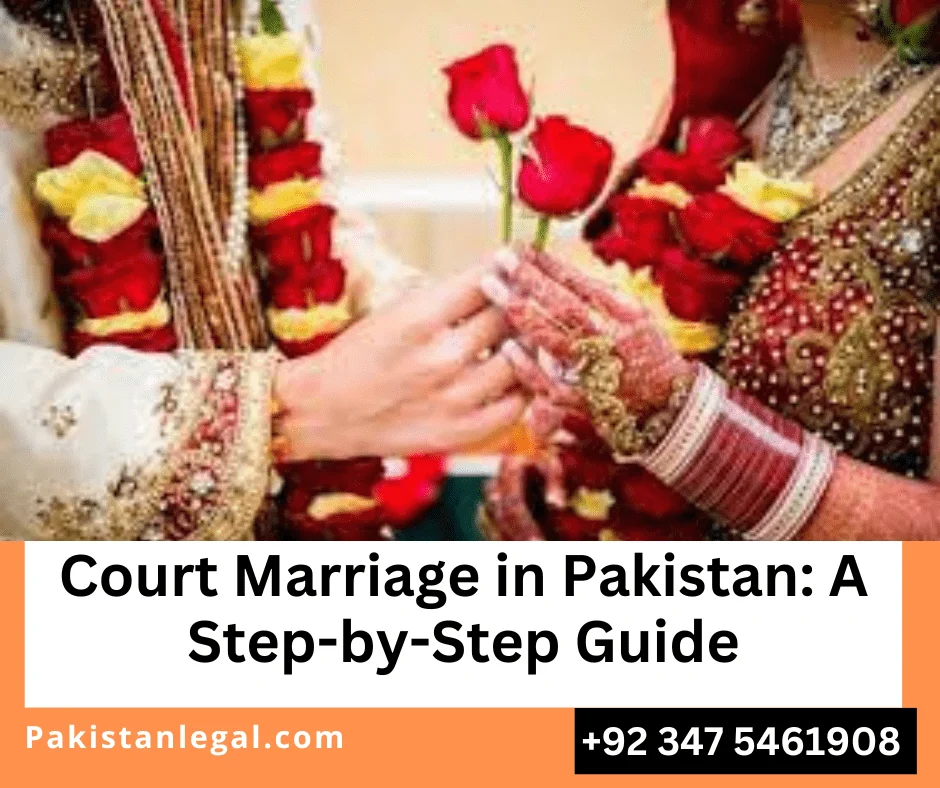
How to Apply for a Court Marriage in Pakistan
Applying for a court marriage in Pakistan involves visiting the local marriage registrar or a court with jurisdiction. Couples must submit the required documents and complete an application form. They may also need to attend a brief interview with a magistrate to confirm their identities and consent before the marriage is officially registered.
The Role of a Lawyer in Court Marriage
The role of a lawyer in court marriage is crucial in ensuring that the process is smooth and legally compliant. A lawyer can guide the couple through the necessary steps, help prepare and verify documentation, and represent them in court if needed. Their expertise ensures that all legal formalities are properly fulfilled.
Navigating the Legal Framework of Court Marriage
Navigating the legal framework of court marriage requires understanding the specific laws and regulations governing the process. In Pakistan, this includes adhering to the Muslim Family Laws Ordinance of 1961. A lawyer can provide invaluable assistance in interpreting these laws, ensuring that all legal requirements are met, and the marriage is valid.
Benefits of Choosing Court Marriage in Pakistan
The benefits of choosing court marriage in Pakistan include legal recognition, simplicity, and privacy. Court marriage is a quick and efficient way to formalize a union without the need for expensive ceremonies. It provides a legally binding agreement that ensures the rights and responsibilities of both parties are protected under the law.
Common Myths About Court Marriage
Common myths about court marriage include the belief that it is not as legitimate as traditional marriage or that it is only for couples facing parental opposition. In reality, court marriage is a fully legal and recognized union. It is an option for any couple seeking a straightforward, no-frills approach to getting married.
The Importance of Consent in Court Marriage
The importance of consent in court marriage cannot be overstated. Both parties must willingly agree to the marriage without any coercion. This ensures that the union is based on mutual respect and understanding. Consent is a fundamental legal requirement, making the marriage valid and ethically sound.
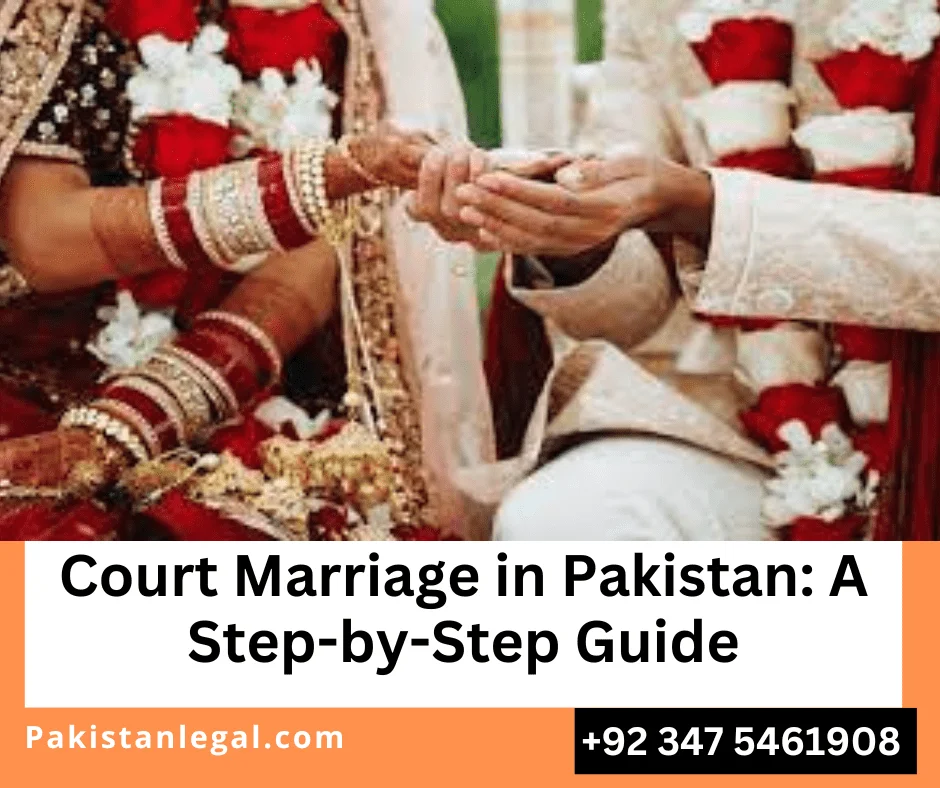
Differences Between Court Marriage and Traditional Marriage
Differences between the court and traditional marriage primarily lie in the procedures and social customs involved. Court marriage is a legal process conducted before a magistrate or registrar, focusing on legal compliance. Traditional marriage involves cultural and religious ceremonies, often with significant social gatherings and celebrations. Both forms of marriage are legally valid but cater to different preferences and needs.
Legal Requirements for Court Marriage: What You Need to Know
Legal requirements for court marriage include fulfilling age criteria, mutual consent, and submitting necessary documents. Both parties must be of legal age and not already married unless widowed or divorced. Ensuring compliance with these requirements guarantees the court marriage is legally valid and recognized by the authorities.
Age Restrictions in Court Marriage: Who Can Get Married?
Age restrictions in court marriage are crucial to ensure the legality of the union. In Pakistan, males must be at least 21 years old, and females must be at least 18. These age limits are enforced to protect the rights and welfare of individuals entering into a court marriage.
Documentation Needed for Court Marriage: A Complete Checklist
Documentation needed for court marriage includes valid identification, photographs, and proof of previous marital status if applicable. Both parties must provide their National Identity Cards and six passport-sized photographs. Additional documents, such as divorce decrees or death certificates of former spouses, are required for those remarrying.
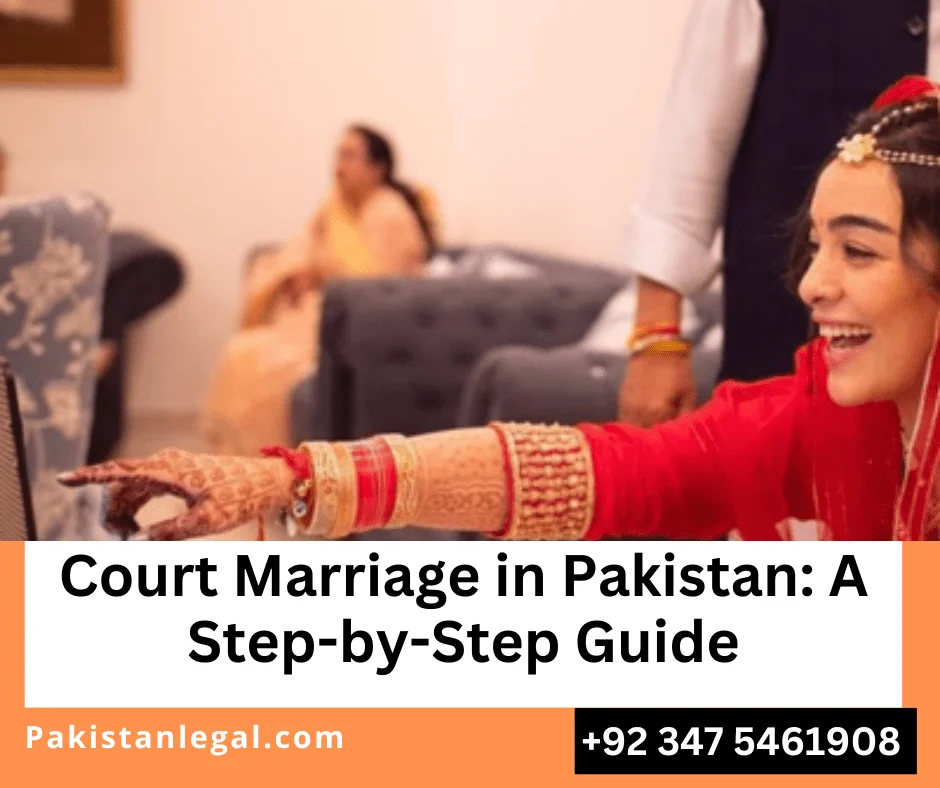
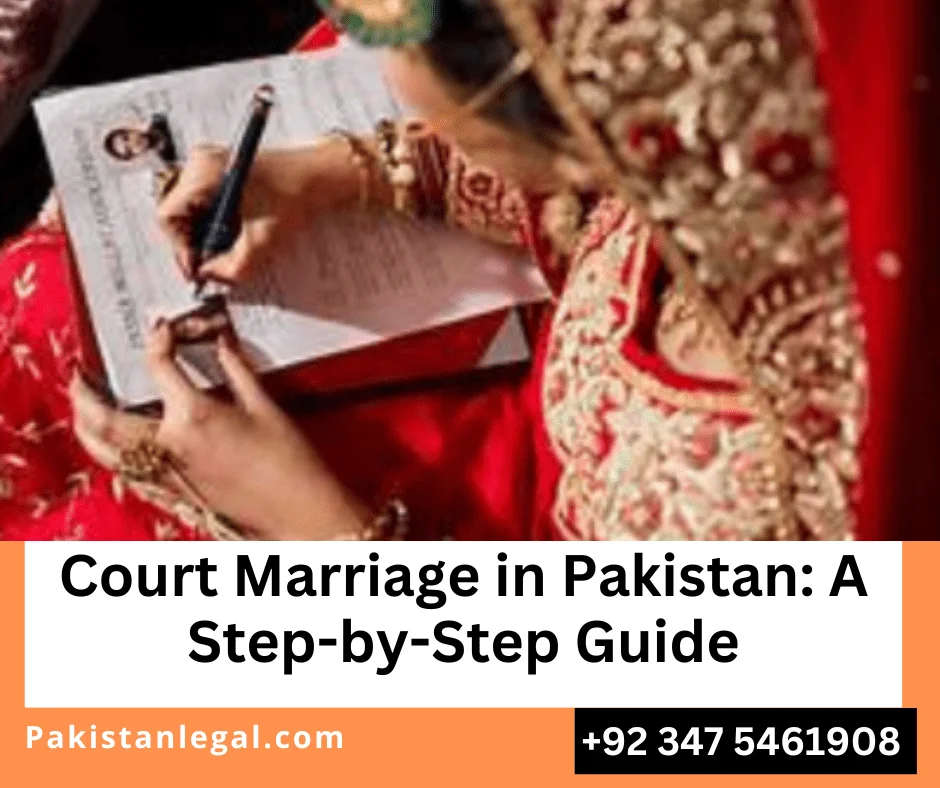
Witness Requirements for Court Marriage: Ensuring Legal Validity
Witness requirements for court marriage ensure the legality and authenticity of the union. Typically, two witnesses are required to be present during the marriage registration. These witnesses must be adults, provide valid identification, and attest to the voluntary consent of both parties entering the court marriage.
Application Process for Court Marriage: How to Get Started
The application process for court marriage involves submitting a completed application form along with required documents to the local marriage registrar or court. Couples may need to attend an interview with a magistrate to confirm their identities and consent. Starting the process correctly ensures a valid court marriage.
Legal Formalities in Court Marriage: What to Expect
Legal formalities in court marriage include submitting documents, attending an interview, and obtaining a marriage certificate. Couples must ensure all paperwork is accurate and complete. Understanding these formalities helps in smoothly transitioning through the court marriage process and securing legal recognition of the union.
Court Marriage vs. Traditional Marriage: Key Differences
Court marriage vs. traditional marriage highlights key differences such as procedure, cost, and formality. Court marriage is a straightforward legal process involving minimal expense and formalities, while traditional marriage includes cultural and religious ceremonies, often with extensive celebrations and higher costs.
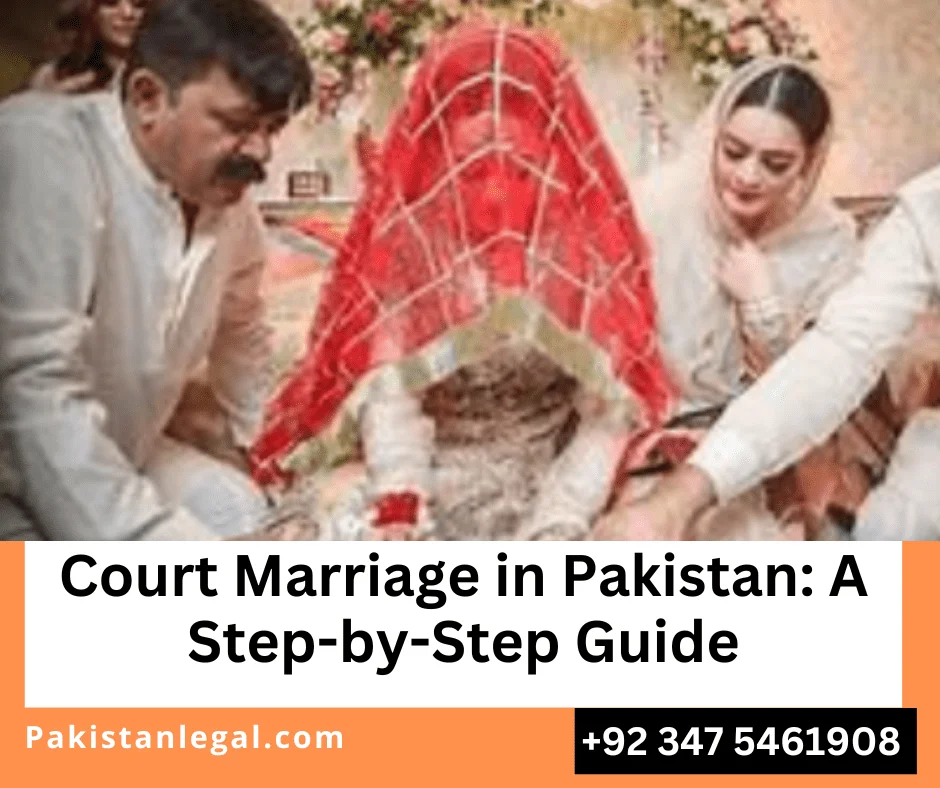

Advantages of Court Marriage: Why Choose This Option?
Advantages of court marriage include legal recognition, simplicity, and cost-effectiveness. Court marriage provides a straightforward process without the need for elaborate ceremonies, making it an ideal choice for couples seeking a quick and legally binding union. It ensures rights and protections under the law.
Common Misconceptions About Court Marriage: Debunking the Myths
Common misconceptions about court marriage include beliefs that it is less valid than traditional marriage or only for those facing opposition. In reality, court marriage is a legally recognized union available to any couple seeking a simple and official marriage process, debunking these myths.
Court Marriage Fees and Costs: What You Should Budget For
Court marriage fees and costs are relatively low compared to traditional weddings. Couples should budget for legal fees, documentation, and any necessary consultations. Understanding these costs helps in planning a court marriage without financial strain, making it an accessible option for many.
Role of Legal Authorities in Court Marriage: Ensuring Compliance
The role of legal authorities in court marriage is to ensure compliance with the law. They verify documents, oversee marriage registration, and issue marriage certificates. Their involvement guarantees the legality and authenticity of the court marriage, providing couples with official recognition.
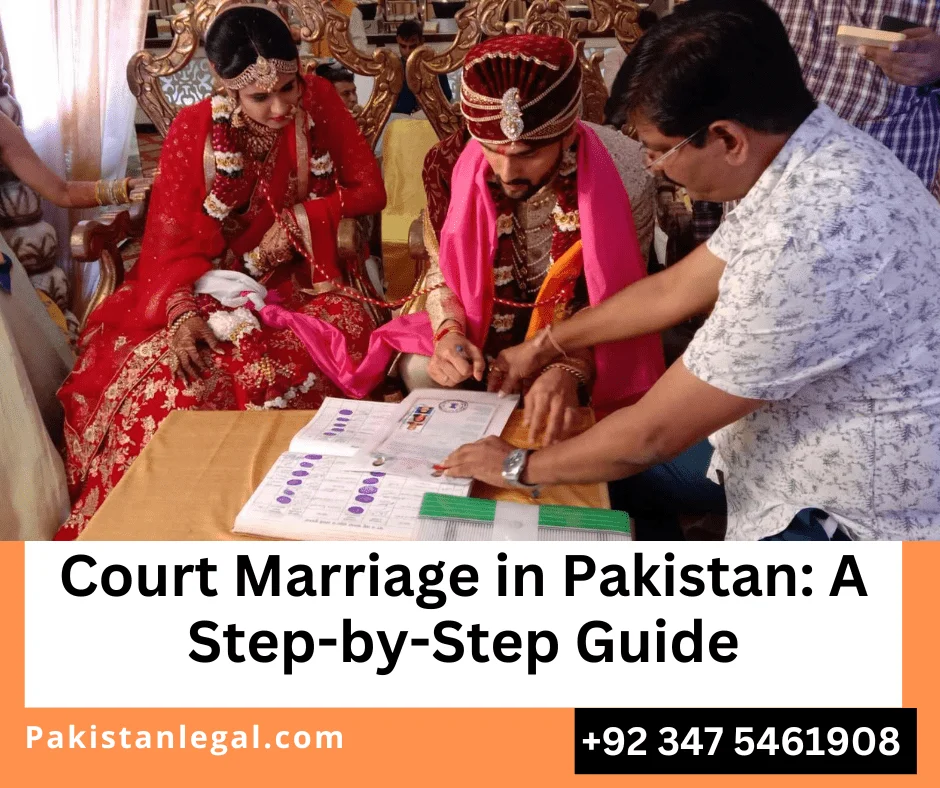
Court Marriage for Interfaith Couples: Navigating Legal Challenges
Court marriage for interfaith couples involves navigating specific legal challenges to ensure compliance with relevant laws. Legal authorities and experienced lawyers can guide couples through the process, ensuring that all legal requirements are met and the marriage is officially recognized despite religious differences.
Court Marriage for Minors: Special Considerations and Procedures
Court marriage for minors requires special considerations and procedures to ensure legal compliance. Parental consent and additional documentation are typically needed. Understanding these requirements and working with legal authorities ensures that the court marriage is conducted legally and ethically, protecting the minors’ rights.
Latest posts
-
 Sales Tax Vs Income Tax in Pakistan: A Business Owner's Guide18 Mar 2025
Sales Tax Vs Income Tax in Pakistan: A Business Owner's Guide18 Mar 2025 -
 Divorce Lawyers: Family Lawyers & Divorce Lawyers in Karachi21 Nov 2024
Divorce Lawyers: Family Lawyers & Divorce Lawyers in Karachi21 Nov 2024 -
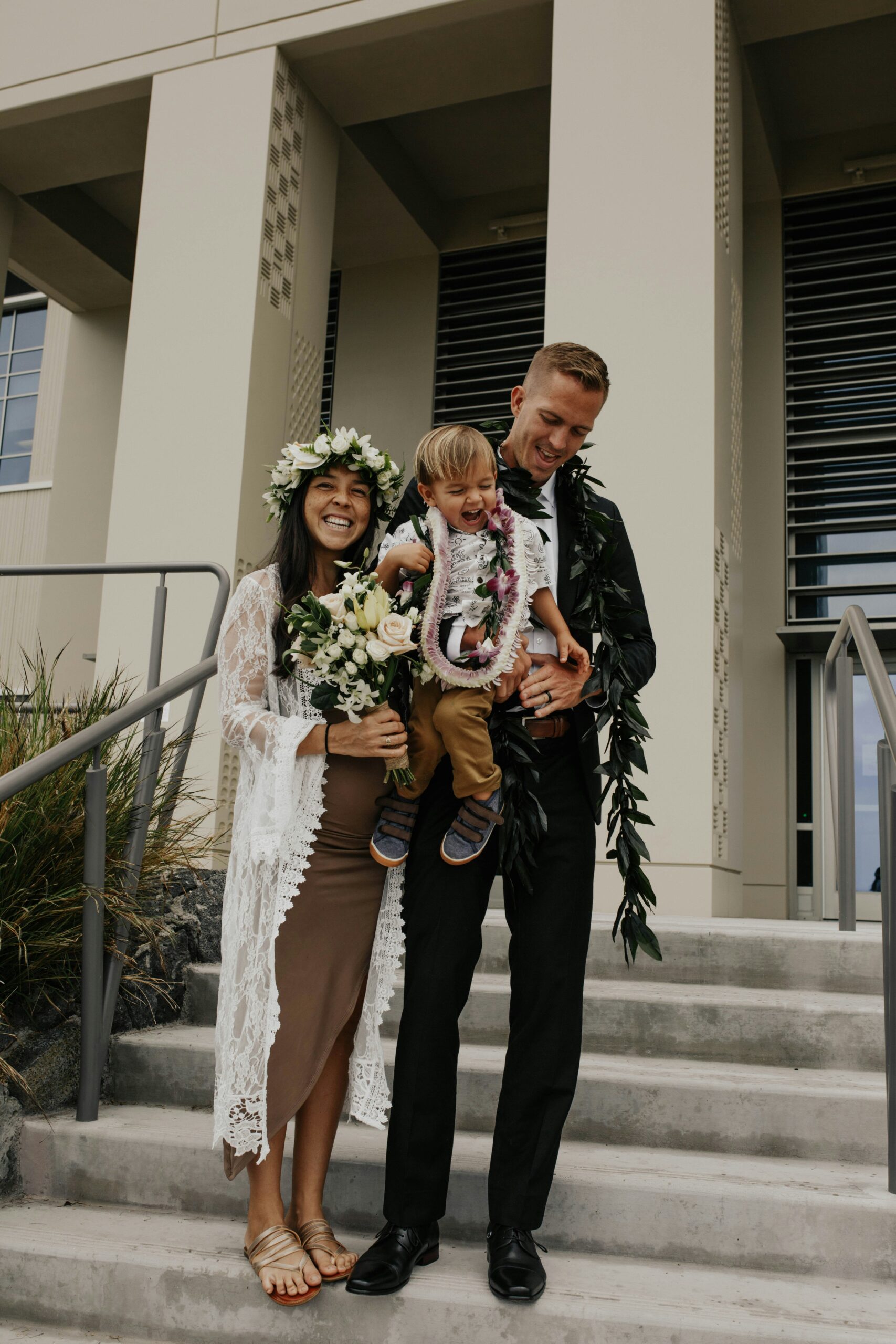 Court Marriage in Islam and Pakistan: A Guide to Court Marriage16 Nov 2024
Court Marriage in Islam and Pakistan: A Guide to Court Marriage16 Nov 2024 -
 Company Registration | Company Registration in Karachi, Islamabad/Rawalpindi & Lahore, Pakistan20 May 2024
Company Registration | Company Registration in Karachi, Islamabad/Rawalpindi & Lahore, Pakistan20 May 2024 -
 Banking Law in Pakistan20 Oct 2023
Banking Law in Pakistan20 Oct 2023 -
 Tax Lawyer in Pakistan19 Oct 2023
Tax Lawyer in Pakistan19 Oct 2023 -
 Is Online Nikah or Online Marriage Legal in Pakistan, Valid in Islam18 Aug 2023
Is Online Nikah or Online Marriage Legal in Pakistan, Valid in Islam18 Aug 2023 -
12 Tables (Twelve Tables) of Ancient Roman Law14 Oct 2022